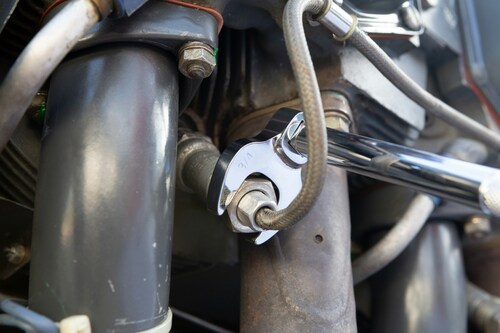Hydraulic systems serve as the backbone of countless industrial applications, from heavy machinery in construction to precision equipment in manufacturing. In today’s rapidly evolving industrial landscape, the optimal functioning of machinery is indispensable for maintaining productivity and efficiency. The proper maintenance and care of these systems, including the choice of hydraulic oil, are critical to ensuring optimal performance, longevity, and environmental responsibility. This article will delve deeper into the multifaceted role of hydraulic fluids in powering progress across diverse industries and environments.
Enhancing Efficiency and Productivity:
Efficiency is the cornerstone of modern industrial operations, where every ounce of energy saved translates into increased productivity and cost savings. Hydraulic systems rely on the smooth and efficient transfer of power, which is facilitated by the proper selection of hydraulic lubricants. High-quality oils with excellent viscosity stability and shear resistance minimise energy losses due to friction and turbulence, maximising the efficiency of hydraulic machinery. Moreover, advanced additive packages help maintain oil cleanliness and performance over extended periods, reducing the frequency of maintenance and downtime.
Ensuring Reliability and Performance:
Reliability is non-negotiable in industrial environments where downtime can lead to significant financial losses and safety risks. The choice of hydraulic oil directly impacts the reliability and performance of hydraulic systems. Opting for oils with superior anti-wear and thermal stability properties helps protect critical components from premature wear and breakdowns. Regular oil analysis and condition monitoring further enhance reliability by identifying problems before they escalate into costly failures. By investing in high-quality oils and proactive maintenance practices, businesses can ensure the continuous operation of their machinery, meeting production targets and customer demands with confidence.
Protecting Equipment and Extending Service Life:
Industrial machinery represents a substantial investment for any business, and protecting this investment is paramount to long-term success. Hydraulic system lubricants play a crucial role in safeguarding equipment from wear, corrosion, and degradation. By forming a protective shield on the surfaces and inhibiting rust formation, high-quality oils extend the service life of pumps, valves, cylinders, and other critical components. Furthermore, proper lubrication reduces friction and heat generation, minimising the risk of catastrophic failures and costly repairs.
Adapting to Diverse Operating Conditions:
Industrial machinery operates in a wide range of environments, from sweltering foundries to frigid arctic conditions, each presenting unique challenges to hydraulic systems. The choice of hydraulic lubricant must take into account these diverse operating conditions to ensure optimal performance and reliability. Low-temperature oils maintain fluidity and responsiveness in cold climates, preventing sluggish operation and component damage. Conversely, high-temperature oils provide thermal stability and oxidation resistance in hot environments, prolonging oil life and maintaining system efficiency. By selecting hydraulic fluids tailored to specific operating conditions, businesses can adapt to diverse environments without compromising performance or reliability.
Environmental Responsibility and Sustainability:
Today, sustainability has become a key consideration for businesses across industries. Hydraulic lubricants made from renewable sources, such as vegetable oils or synthetic esters, offer a sustainable alternative to traditional petroleum-based fluids. These biodegradable oils minimise environmental impact in the event of leaks or spills, reducing soil and water contamination and mitigating ecological risks. Additionally, recycling and re-refining programs further contribute to the sustainability of hydraulic fluid usage by minimising waste and conserving resources.
In conclusion, the choice of hydraulic oil is a critical decision that impacts the efficiency, reliability, and sustainability of industrial machinery. From enhancing efficiency and productivity to ensuring reliability and performance, hydraulic lubricants play a multifaceted role in powering progress across diverse industries and environments. By prioritising the selection of high-quality oils tailored to specific applications and operating conditions, businesses can protect their equipment, minimise downtime, and contribute to a more sustainable future. In the dynamic and demanding world of industrial operations, the right hydraulic oil is essential for keeping machinery running smoothly, driving progress forward, and shaping a brighter tomorrow.




